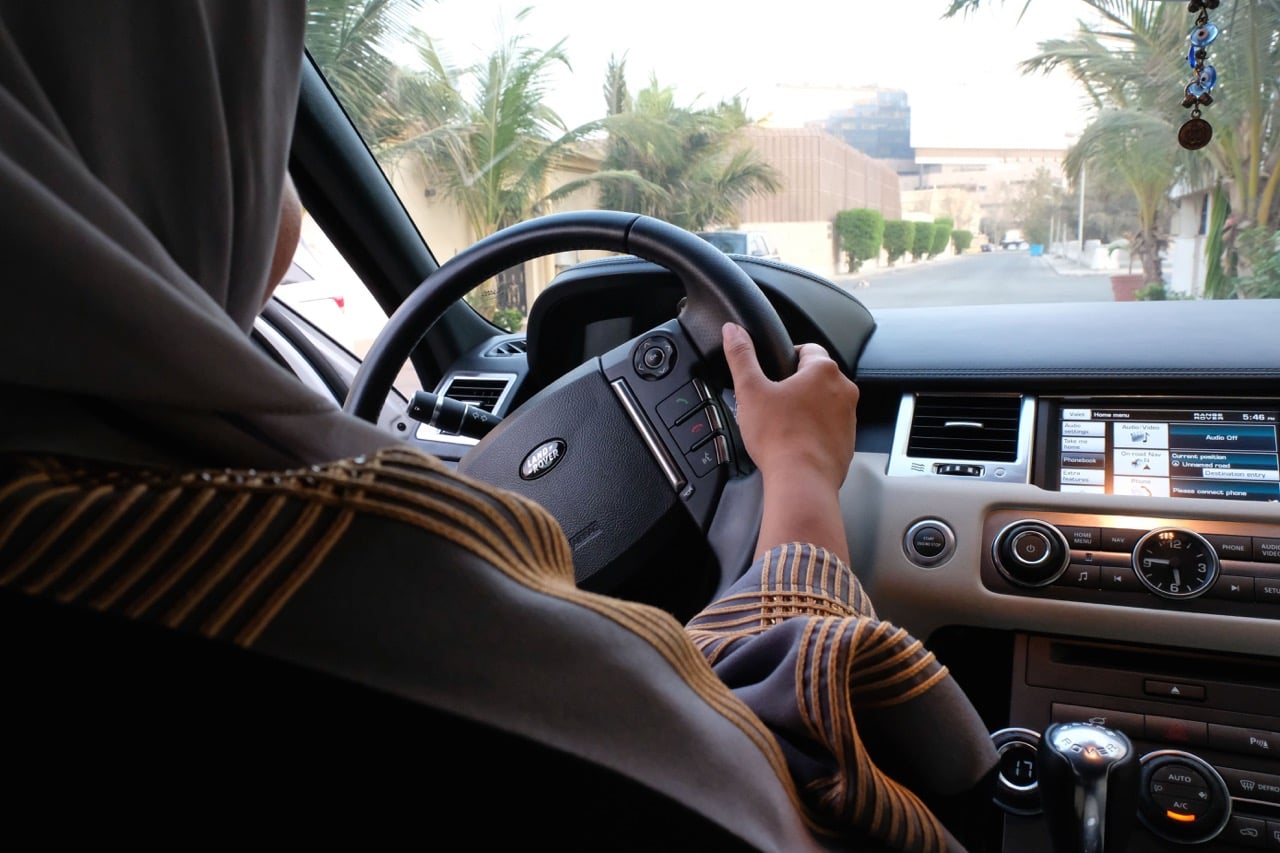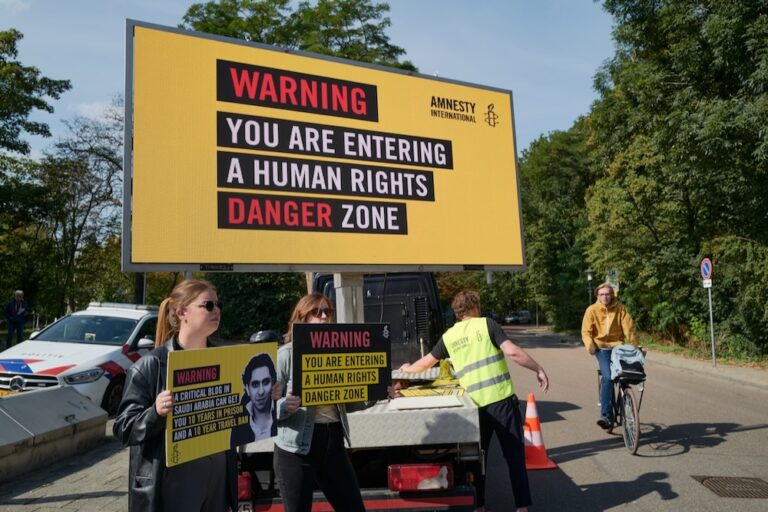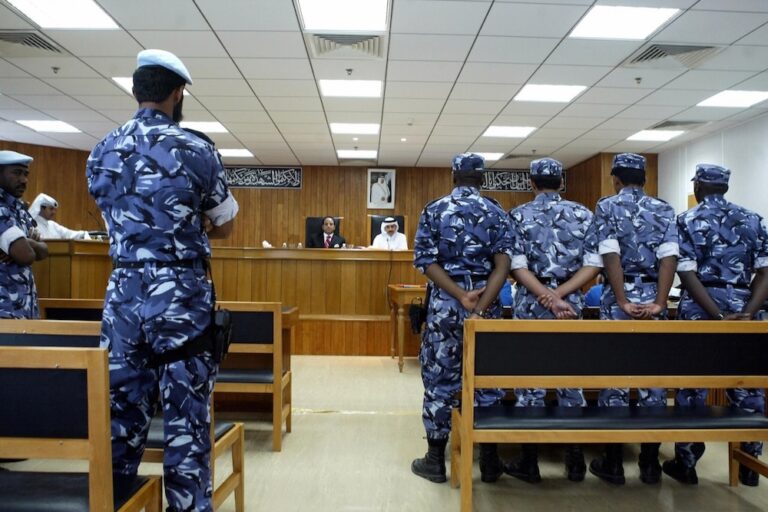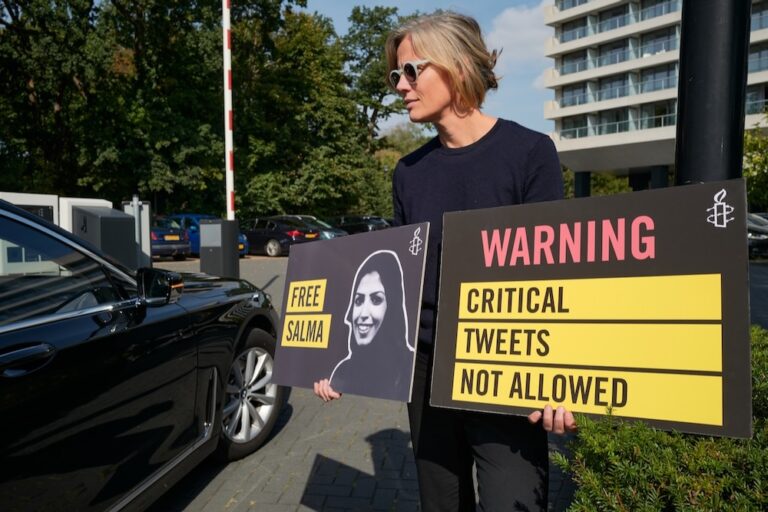The international human rights movement has been very disappointed to see Saudi Arabia regain its seat on the Human Rights Council.
This statement was originally published on gc4hr.org on 1 March 2018.
The United Nations Human Rights Council consists of 47 Member States elected by a majority of the members of the UN General Assembly by direct and secret ballot. The Council is the highest international body dealing with human rights issues around the globe. It is not a passing dream but a decisive goal for those who love freedom and peace to seek the Council to become an effective body. It must audibly speak out and become capable of stopping the violations of human rights in many countries around the globe, including Saudi Arabia.
The General Assembly should take into account the contribution of candidate States that seek membership of the HRC in the promotion and protection of human rights, as well as their voluntary pledges and commitments in that regard. But all this did not happen when Saudi Arabia was elected twice. In fact, when it was elected in October 2016 for the second time, there were no elections or secret ballot, no assessment of Saudi Arabia’s shameful human rights record because the seats are geographically distributed and the Asian group had four candidates, including Saudi Arabia, for its four vacant seats. Therefore, Saudi Arabia ensured it would effortlessly hold a seat until the end of 2019 without facing any accountability.
The international human rights movement has been very disappointed to see Saudi Arabia regain its seat on the Human Rights Council, as it is the country leading a coalition that has waged a war against Yemen since March 2015 and has so far killed thousands of civilians, including many children. Saudi Arabia is included in the 2017 international “list of shame” for killing children in Yemen after it used pressure to remove itself from the same list in 2016.
Saudi Arabia, a member of the Human Rights Council, was preventing women from driving until recently when a royal decree was issued in September 2017 to allow women to drive starting in June 2018, but there are still rules in the Kingdom which stipulate that women have a male guardian at all times.
When we talk about the human rights movement, we see clearly that the Saudi authorities have severely and publicly attacked this movement on many occasions. Authorities have refused all along to grant permits to human rights organisations on the one hand, and on the other hand, have imprisoned, tortured and tried many human rights defenders and women defenders on false charges before the Specialised Criminal Court (SCC). The SCC was established in January 2008 to consider issues related to terrorism and state security, but was quickly harnessed to target human rights defenders in the Kingdom.
Indeed, human rights defenders and women defenders have been treated like terrorists and worse than criminals. If they applied for a permit for their organisations to work within the framework of the law, their application would be rejected. However, if they continued to work in the field of human rights, they will be arrested one by one for membership in an unlicensed organisation.
Perhaps the scandal that Saudi Arabia cannot express a word about is its blatant targeting of human rights organisations, foremost of which is the Association for Civil and Political Rights in Saudi Arabia (ACPRA). All its founding members were arrested and tried on false and fabricated charges before the terrorist court. In March 2013, Saudi Arabia, a member of the UN with an eye to gaining membership of the Human Rights Council, sentenced a reliable academic and courageous human rights defender, Dr. Mohammad Al-Qahtani, to ten years in prison, followed by another ten years of travel bans. Among the charges that were directed against him is membership of ACPRA despite the refusal of the authorities to give permission to it and other similar organisations to operate; as well as cooperation with the mechanism of the Human Rights Council of the United Nations as stated in the indictment.
On 25 January 2018, the SCC sentenced Mohammed Abdullah Al-Otaibi to 14 years in prison and Abdulla Madhi Al-Attawi to seven years in prison.
They have been charged, among other things, with the following: participating in setting up a human rights organisation (the Union for Human Rights) and announcing it, prior to obtaining an official permit; preparing and signing petitions and publishing them on the Internet, which harms the reputation of the Kingdom and its justice and security institutions; publishing information about their interrogation despite signing pledges not to do so; spreading chaos and incited public opinion; re-tweeting a tweet on Twitter after it was published by a member of ACPRA, human rights defender Issa Al-Hamed, who is currently in prison.
Thus it can be said that the human rights situation in Saudi Arabia has markedly deteriorated and there has been a renewed crackdown against human rights defenders, since the accession of Mohammad bin Salman as Crown Prince in June 2017. The environment for human rights defenders has become increasingly dangerous as they are systematically targeted by the authorities on a daily basis.
Writers, academics, on-line activists and clerics have been among those arrested recently. In one week alone in September 2017, more than 20 prominent human rights defenders were detained following a wave of house raids and arrests.
Women human rights defenders were also subjected to silencing after being summoned for interrogations where they were asked to sign pledges to refrain from engaging in advocacy online. On the day of the announcement of the Royal Decree to repeal the ban on women driving, the Royal court phoned several prominent women’s rights defenders who advocated for women driving and warned them from commenting on the Royal decision or they would face legal measures.
It’s important to mention woman human rights defender Noha Al-Balawi, who is active online in supporting civil and political rights for women. Al-Balawi, a college student from Tabuk, was arrested two weeks ago in the last week of January 2018. On 5 February, her detention was extended for another month.
In a YouTube video from 7 November 2017, she supported the driving campaign for women and solidarity with the prisoners of conscience in Saudi Arabia. See in Arabic:
Some reports said that the reason for her arrest was a YouTube video she published criticizing the normalization of relations with Israel, while other reports said her brother Badr and her sister Rana had also been arrested. See in Arabic also.
A source from inside the country told the Gulf Centre for Human Rights (GCHR) that “Activists believe that we need to announce her case as her detention has been extended for another month, hinting that the case may take a serious course, which is expected considering the nature of her critical opinions and the state’s intolerance of any dissent.” It is difficult to obtain information on her detention as she has no legal representation, according to a close source.
On 22 February 2018, reliable sources confirmed to the GCHR that Al-Balawi has been released after 29 days of arbitrary detention.
In the midst of these sad developments there is always something to celebrate and joy as prominent Saudi women’s rights defender and GCHR Advisory Board member Dr. Hala Al-Dosari won the 2018 Alison Des Forges Award for Extraordinary Activism by Human Rights Watch.
The Gulf Centre for Human Rights calls on the Saudi authorities to:
- Immediately repeal the sentences against all human rights defenders and repeal all charges against them;
- Immediately release all human rights defenders and prisoners of conscience in Saudi Arabia whose arrest concerns only peaceful and legitimate action in the promotion and protection of human rights;
- Immediately release all women prisoners who are being detained in violation of their right to freedom of expression;
- Allow all citizens to express themselves freely in relation to the rights of women;
- Allow public discussion of campaign and freedom from the guardianship system; discuss the legitimate civil and political rights of the people; and
- Ensure in all circumstances the ability of human rights defenders and Internet activists in Saudi Arabia to carry out their legitimate human rights work without fear of retaliation and without any restrictions, including judicial harassment.



